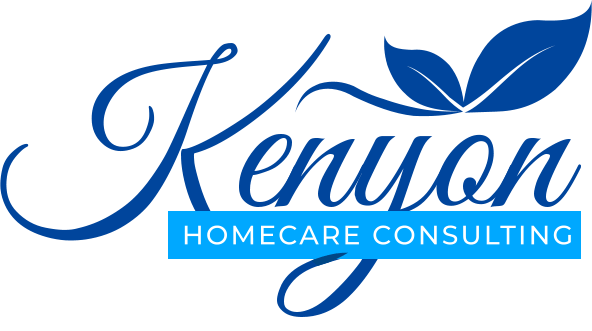Ten Things to Consider When Hiring A Consultant
From time to time, we all have an occasion to need some “outside” help with problems that arise in our day to day business activities. Many of us turn to a consultant or coach to assist with the issues. Hiring a consultant is much like hiring a senior level employee and should be treated with the same due diligence.
Choosing The Right Consultant For You:
How do you assure that your experience is just what was needed? What the consultant does or recommends frequently has more impact than an employee and can have long lasting effects. The interview and background review should include the following;
1. Experience: How many years has the consultant been in the home health business and at what level of responsibility? How many years was the consultant in that previous position? What does the consultant do to maintain their knowledge of the industry? Do they regularly speak at conferences or write articles? Ask for an updated resume.
2. Years as a Consultant: How many years has the consultant been in the industry consulting and can they give you references that support their ability to assist you? You will want to have a consultant that has not only experience, but also someone who understands the role of the consultant. Ask about their style and how they function in the consulting role.
3. Depth of Resources: Does the consultant work alone or do they have associates that are experts in different areas e.g. accreditation, OASIS training etc., ICD-9 coding, sales and marketing etc. With the complexity of the home care industry, it is imperative that the consultant is either an expert themselves in the area you need assistance or have associates who are expert in the area. Ask for their background as it relates to the area of practice you need assistance with or who of their associates will be providing this service.
4. Culture Sensitivity: Interview the consultant for their ability to be sensitive to culture. If you have a culture based in religious beliefs or one of bottom line practice, it is important that the consultant be able to modify the approach to your organization allowing them to effectively interface with staff. Construct interview questions that will elicit this information.
5. Assessment Skills: The consultant must be able to fully understand your issues and problems as you perceive them and effectively determine how much of it is perception and what is predicated on data and facts. The ability to quickly assess an organization and develop effective approaches is critical to the success of your investment. Ask how the consultant will do this assessment.
6. Personalized plans: Does the consultant use a basic plan for all contracts and modify it to meet your needs or is it a plan developed only for you and your organization? Because of culture, area of the country, structure of the organization and staff, no two agencies are alike. What works in one agency may have elements that work in yours but the plan must be personalized to your needs. Ask how the consultant prepares the recommendations for your agency.
7. Reference Checks: Can the consultant provide you with references for the type of services you provide and for the kind of assistance you need? Do they primarily specialize in Medicare services or do they offer a wide range of experience in community based services? Does their reference list reflect this?
8. Cost or Fees: Cost is of course a factor in the decision to hire one consultant over another, but should not necessarily be the deciding factor. A consultant with limited experience may take longer to provide the recommendations and then may not be what you need. This will cost more than a tenured experienced consultant may charge. In the proposal, is there evidence that the consultant is attempting to control the costs? Is there language that says for example, costs not to exceed a certain amount for specific sections of the proposal? Discuss how they can help limit the cost with the same deliverables.
9. Reporting structure: Whether you are hiring a consultant to do an interim management contract or an organizational assessment with recommendations, there needs to be an understanding in the proposal or verbally as to when the report(s) will be provided and to whom those report(s) will go. An organizational assessment with findings and recommendations is not helpful if it is delivered to the organization three or four months after the assessment. Two to three weeks is the normal expected time for such a report. If the contract is for interim management, then a monthly written or verbal report of the status of the organization and issues with a dashboard report would normally be expected. Ask the consultant how they provide reports of their findings and their time lines for such reports.
10. Follow-up : What is the follow-up plan after the initial consulting? Is it part of the fee or is there an additional cost? Follow-up to assist with the implementation of the recommendations is often critical. At this phase the most important question is are you willing to make the changes in practice and possibly staff to achieve the goals that the consultant has helped you develop? Ask how the consultant can help with that and what the additional costs may be.
Now, if you have hired the right consultant, received a great report with recommendations but never follow through, you have wasted the money and potentially some credibility with staff. You will have a couple different potential reactions from staff. Some will want to enact changes recommended by the consultant to fix problems that exist. Others will have a vested interest in not seeing any changes and may overtly or covertly try to sabotage the
changes recommended by the consultant. A good consultant can assist you not only with the implementation of the recommendations, but with strategies to achieve buy in by your staff as a whole. If you need to consider a consultant for your agency, then call kenyonhcc.com at 206-721-5091 or contact us online to see how we can help you achieve your goals.
Results Based Consulting
Did you find value in this blog post? Imagine what we can do for your home care or hospice agency. Fill out the form below to see how we're leading the industry with innovation, affordability, and experience.
Contact Us
We will get back to you as soon as possible.
Please try again later.









Kenyon Home Care Consulting now provides policies and procedures manuals for download which accurately reflect how to run your agency. Our manuals are formatted to guide you in an organized and step-by-step manner.
Get Accredited.
Pass Your Audits.
Specialized Training.
The content on this website should not be taken as professional advice, and terms are subject to change.
The content on this website doesn't constitute as consultant client relationship.

